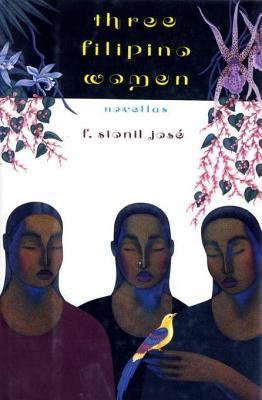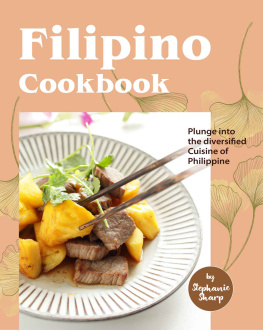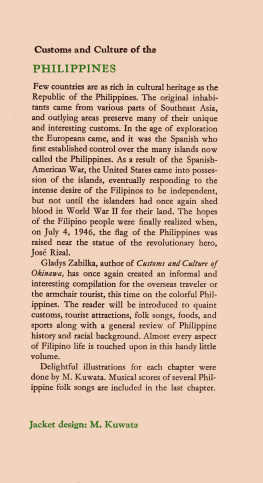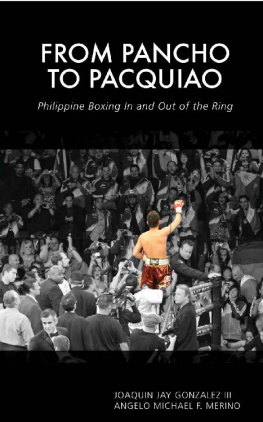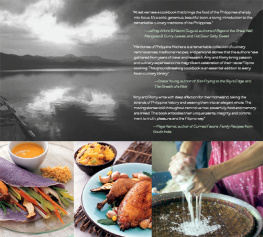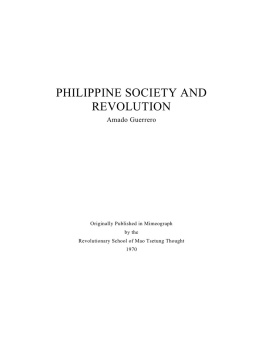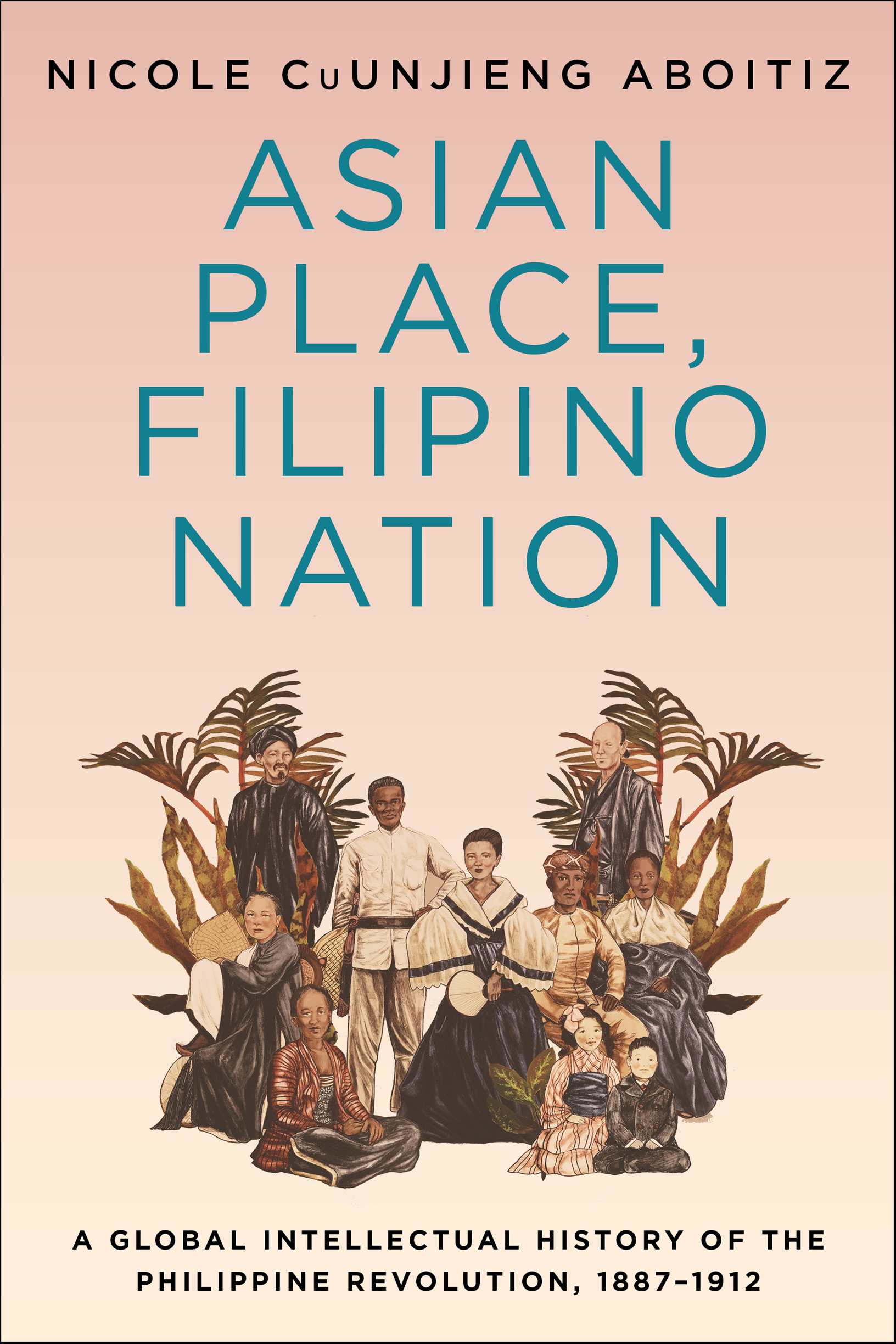Contents
Guide
Pagebreaks of the print version
Asian Place, Filipino Nation
COLUMBIA STUDIES IN INTERNATIONAL AND GLOBAL HISTORY
COLUMBIA STUDIES IN INTERNATIONAL AND GLOBAL HISTORY
Cemil Aydin, Timothy Nunan, and Dominic Sachsenmaier, Series Editors
This series presents some of the finest and most innovative work coming out of the current landscapes of international and global historical scholarship. Grounded in empirical research, these titles transcend the usual area boundaries and address how history can help us understand contemporary problems, including poverty, inequality, power, political violence, and accountability beyond the nation-state. The series covers processes of flows, exchanges, and entanglementsand moments of blockage, friction, and fracturenot only between the West and the Rest but also among parts of what has variously been dubbed the Third World or the Global South. Scholarship in international and global history remains indispensable for a better sense of current complex regional and global economic transformations. Such approaches are vital in understanding the making of our present world.
For a complete list of titles, see .
ASIAN PLACE, FILIPINO NATION
A Global Intellectual History of the Philippine Revolution, 18871912
NICOLE CUUNJIENG ABOITIZ

COLUMBIA UNIVERSITY PRESSNEW YORK
Columbia University Press
Publishers Since 1893
New YorkChichester, West Sussex
cup.columbia.edu
Copyright 2020 Columbia University Press
All rights reserved
E-ISBN 978-0-231-54968-4
Library of Congress Cataloging-in-Publication Data
Names: CuUnjieng Aboitiz, Nicole, author.
Title: Asian Place, Filipino Nation : A Global Intellectual History of the Philippine Revolution, 1887-1912 / Nicole CuUnjieng Aboitiz.
Other titles: Global intellectual history of the Philippine Revolution, 18871912
Description: New York : Columbia University Press, [2020] | Series: Columbia studies in international and global history | Includes bibliographical references and index.
Identifiers: LCCN 2019044268 (print) | LCCN 2019044269 (ebook) | ISBN 9780231192149 (cloth) | ISBN 9780231192156 (paperback)
Subjects: LCSH: PhilippinesHistoryRevolution, 18961898Influence. | Anti-imperialist movementsPhilippines. | TransnationalismPolitical aspectsPhilippines. | National characteristics, Philippine. | National characteristics, Asian. | DecolonizationPhilippines. | PhilippinesRelationsEast Asia. | East AsiaRelationsPhilippines. | PhilippinesRelationsSoutheast Asia. | Southeast AsiaRelationsPhilippines.
Classification: LCC DS682 .A138 2020 (print) | LCC DS682 (ebook) | DDC 959.9/027dc23
LC record available at https://lccn.loc.gov/2019044268
LC ebook record available at https://lccn.loc.gov/2019044269
A Columbia University Press E-book. CUP would be pleased to hear about your reading experience with this e-book at .
Cover design: Julia Kushnirsky
Cover art: Tintin Lontoc
For Carlos
Contents
As with all things Ive attempted, this book was only successfully completed due to the generous, patient aid of many. I would like first to acknowledge Yale University, whose faculty and students showed me the possible heights of discourse and original thought. Ben Kiernan was my advisor and mentor, and his boundless enthusiasm, patience, and dedication to my scholarly development made this book possible; his mark is visible to me on every page. Jenifer Van Vleck helped me to think boldly; Peter Perdue gave me my model of a true scholar; Jim Scotts example kept me critical; Dani Botsman showed me how to teach and ensured that I succeeded in all projects we undertook together; Erik Harmss expansive thought inspired and shepherded me at different points. Additionally, Id like to thank Valerie Hansen, Fabian Drixler, Hal Conklin, Karuna Mantena, Paul Kennedy, and Adam Tooze, as well as Marcy Kaufman, Kris Mooseker, and Rich Richie. It is with them that I boast of having worked whenever anyone gives me the opportunity.
Outside Yale, I must first thank Caroline Hau, whose celerity, expertise, and power of synthesis benefited this book immeasurably. Im deeply indebted to Jim Richardson, Motoe Terami-Wada, Natasha Pairaudeau, Haydon Cherry, Caelyn Cobb, and my particularly transformative peer reviewers at Columbia University Press, who provided incisive comments and corrections to early drafts and developed this book significantly. Carol, Jim, and Motoe, in particular, provided me much undeserved care and guidance. I also wish to acknowledge the Weatherhead Center for International Affairs at Harvard University and Clare Hall at the University of Cambridge, my recent and current intellectual homes and the places where I completed this book manuscript. I owe a great intellectual debt to Cemil Aydin, Erez Manela, Sugata Bose, Sunil Amrith, Resil Mojares, Al McCoy, Tim Harper, Uday Singh Mehta, Megan Thomas, and Filomeno V. Aguilar Jr. in particular. Id also like to thank Michael Laffan, Sarah Igo, Julius Bautista, Oona Paredes, Bernardita R. Churchill, Patricio Abinales, Rogers Smith, Frederick Dickinson, Kevin Fogg, Naoko Shimazu, Ricardo Jose, Marita Concepcion Castro Guevara, Vicente Rafael, David Ibbetson, Vernon R. Totanes, Kathleen Molony, and Amanda Barclay. I could not wish for greater professional examples, inspiration, or company.
I am also deeply indebted to the kindness and aid of the Archivo General de Indias, Archivo General Militar de Madrid, Archivo Histrico Nacional de Espaa, Hemeroteca Municipal de Madrid, Fundacin Antonio Nez Jimnez, Archivo Nacional de la Repblica de Cuba, Centro de Estudios Martianos, British Library, National Archives at Kew, Cambridge University Archives, National Archives at College Park and National Archives and Records Administration in Washington, D.C., Public Records Office of Hong Kong, Macau Historical Archives, National University of Singapore, Ateneo de Manila University Archives, University of the Philippines Manuscripts and Archives, University of the Philippines Special Collections, National Archives of the Philippines, National Library of the Philippines, Jos P. Laurel Memorial Foundation, and Yale University Manuscripts and Archives. Id also like to thank the Council on Southeast Asia Studies, MacMillan Center, and International Security Studies at Yale, the Institute of Philippine Culture at Ateneo de Manila University, the Third World Studies Center at the University of the Philippines, and the Whitehead Fund of Clare Hall at the University of Cambridge for their support. I am grateful to Tintin Lontoc, Karina Bolasco, Columbia University Press and my colleagues there, Ginny Perrin, Monique Briones, Marisa Lastres, Zachary Friedman, and Yi Deng, for all their work in bringing this book to life.
I wish to thank Cindy Tan Ewing, Tanya Lawrence, Faizah Zakaria, Tri Phuong, Elliott Prasse-Freeman, Lisandro Claudio, Anthony Medrano, Justin Jackson, Ryan Jones, Georgina Blackett, Stephen Krewson, Maximilian Krah, Das Konsulat, and the old New York Ph.D. gang (Nicholas Mayer, Jonathan Liebembuk, Elizabeth Frasco, and Sunita Desai) for teaching me how to think and for showing me what youth and brilliance look like in combination. I wish to thank my parents, Stephen and Maitoni, and my brothers, Miguel and Enrique, for their support. Finally, I wish to thank Carlosfor nearly everything else in between and since: this book is dedicated to him.


